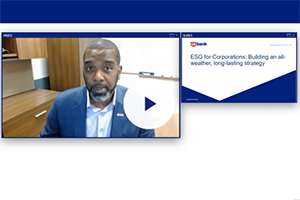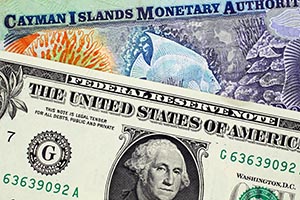Private equity firms of different sizes need different support from their service providers. Learn how asset managers’ needs change as they grow their AUM and infrastructure.
Private equity (PE) growth is soaring of late. Last year, “General partners (GPs) had their second-best fund-raising year in the industry’s history, capping a five-year run that has netted $1.8 trillion in new buyout capital,” according to a Bain Capital 2022 private equity report. The report also states that “Average deal size pierced through the $1 billion mark in 2021 for the first time ever.”
Within this thriving asset class, the type of support managers need from their service providers can look quite different from one firm to the next – and a lot of it depends on their size. The larger and more institutional a firm becomes, the more its needs shift. In this article, we’ll discuss the specific requirements of large PE firms and how they vary from those of their smaller-sized counterparts.
The $2 billion threshold
In broad terms, the major difference between smaller firms and larger firms is the level of infrastructure they’re able to build out and support. Managers with less than $2 billion in AUM are more directly reliant on their administrator for information with which to make investment decisions and strategic choices for the firm. At that level, a firm generally outsources most of its operations, and its personnel often adopt multiple roles.
“$1 billion is clearly not a small dollar amount, but in terms of an asset manager, that’s viewed as a smaller-sized shop,” says James Byron, vice president of private equity product management at U.S. Bank Global Fund Services. “At that size, they don’t necessarily have the built-out staffing, technology or infrastructure in their office – meaning they’ll probably have to outsource, and individuals might have to wear multiple hats. For example, they may not have an in-house legal team, or their CFO might also act as their COO.”
However, once a firm grows its AUM to a critical mass around the $2 billion mark, operations start to expand, and the service provider role starts to shift.
“Smaller firms depend on the work product from the service provider to be accurate,” says Byron. “They’re not recalculating every single item in a trial balance to get to their NAV. They’re taking what the administrator says and using that to publish. But as the firm grows, the size of its staff increases, and the role of the administrator shifts a bit to where they become more of an independent, third-party validator.”
Larger infrastructure, larger investors
Smaller firms often have to aggressively pursue the investors they want in their fund. But as a firm grows its infrastructure and reputation, it becomes more attractive to large, established institutional investors that require transparency and controls smaller firms can’t accommodate.
“Once you get to a certain size – and as long as you keep delivering good returns – the reputation of the firm builds on itself,” says Brian Bekiers, head of U.S. Alternative Investments at U.S. Bank Global Fund Services. “Everybody knows who the top PE firms are. And if you’re a big institutional investor, that’s who you’re seeking out. You need transparency, and you know they’ve got the controls and infrastructure in place to manage your assets.”
As the scale of operations gets bigger, the client base becomes more institutional, and the infrastructure has to continue growing to support it.
“Think about the service teams of some of the big players,” says Bekiers. “They have entire trader networks, back-office accountants, middle-office teams processing deals, deep technology stacks, data warehouses, sales and marketing teams – and the list goes on and on.”
Service provider as third-party validator
For large PE firms, the service provider then takes on a much different role – that of an outside validator. Large institutional clients want a reputable, independent third-party producing reports. The service provider essentially becomes a control check and the client-facing contact for the performance of the fund.
“Once you get to the threshold of $2 billion and larger, the role of the administrator becomes more of a validator,” says Byron. “In a sense, it also puts more pressure on the administrator to be accurate, because the client is essentially performing the same calculations in-house. For these larger shops, you’re sending a NAV to the client, and they’re reviewing and validating that it matches their calculations. Whereas smaller shops don’t have the capabilities to do much more than occasional spot checks here and there.”
This makes any errors that much more obvious – and the stakes for getting it right every time that much higher.
“At the end of the day, we’re a fund’s books and records as the administrator, there’s just more scrutiny coming from larger clients. They have to outsource, because their investors want a third party doing that work – but if they’re finding inconsistencies, then that’s going to prompt them to look elsewhere for those services.”
What do large firms require?
It’s no mystery what large firms are looking for, but given the complexity of the space, not every provider can meet the challenge.
“The three key functions that every CFO and COO want from their administrator are NAV delivery, financials and investor reporting, which covers PCAP statements and as capital events such as capital call distributions,” says Byron. “And these deliverables need to be timely and accurate.”
Accommodating these requirements often means a provider must be willing and able to customize their processes, deliverables and timelines.
“At the end of the day, it’s not about the glitz factor,” says Bekiers. “What’s of greatest value is your accountancy around carried interest calculations, your accountancy around allocations, and your ability to ensure investor statements are 100% accurate and delivered on time, every time.”
The right combination of experience and capabilities
At U.S. Bank, our complete fund service solutions coupled with our large custody infrastructure can accommodate almost any requirements. In the U.S. alone, our Global Fund Services Alternative Investments team has experienced asset growth of 79% in the last three years with the fastest growing asset segment being private equity at a rate of 154% in that same period.
“Here at U.S. Bank, we pride ourselves on being really good at the hard stuff – whether that’s the asset class or the fund structuring,” says Bekiers. “We deeply understand this product type. We embrace the complexity. And we dig into what our clients expect from us and deliver.”
When you partner with the right service provider, you can trust them to calibrate to your specific needs, regardless of the size or complexity of your fund.
Whether you’re a large, established PE firm, or a smaller shop looking to take your business to the next level, we have a full spectrum of fund servicing solutions to help accelerate your success.
To learn more, visit our website or check out these other resources:































